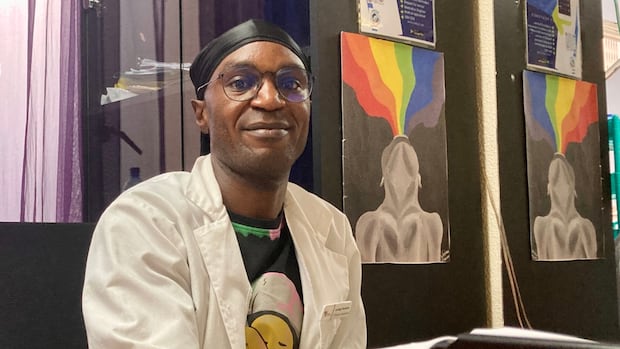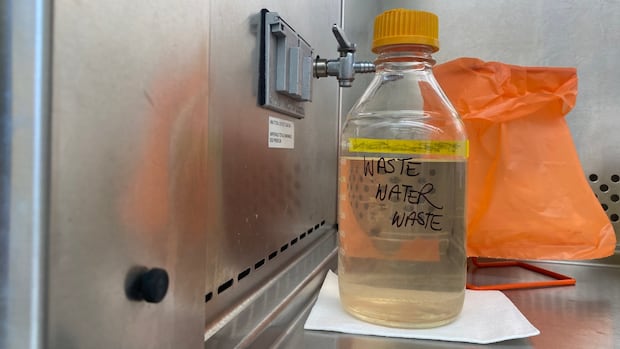It was like any other day on the farm, but within minutes, the ordinary turned life-changing.
Meaka Star’s quick recognition of a stroke may have saved her grandmother Marleen Conacher’s life.
They’re sharing their story this June, Stroke Awareness Month, to raise awareness of the signs of stroke and the importance of acting fast.
“She saved my life, or saved me at least from a life of maybe a wheelchair or not being able to talk, with her fast actions. She saved me and she’ll always be my hero,” Marleen said.
Marleen was spending time with her two granddaughters in July 2021. The plan was simple: dinner, a movie and a relaxing night.
Meaka, who was 10 years old at the time, noticed something was off. Her grandmother’s voice had disappeared and her face was drooping. Then she collapsed.
“I called dad and told him what was happening. So he told me to call 911,” Meaka said in an interview on CBC’s Saskatoon Morning.
Her quick thinking got Marleen to the hospital just in time.
Then it happened again six days later. Marleen, who was recovering from the last stroke, couldn’t open a pill bottle. Meaka spotted the signs immediately.
“I knew exactly what was happening again. So I called Dad. He told me to do the same thing, call 911. So I did. And then my Auntie Lori came and took Mama to the hospital,” she said
“They were really proud of me and really surprised that a 10-year-old did that.”
Meaka received a Hero Award at school. Marleen said her granddaughter is her hero.
The FAST method for recognizing a stroke
FAST (face, arms, speech, time) is an acronym for steps to take to assess whether someone is having a stroke.
- Face: Is their face drooping?
- Arms: Can they lift both of their arms?
- Speech: It it slurred or gone?
- Time: It’s of the essence. If you think they could be having a stroke, call 911 right away.

Another close call
Carmi Levy, 46, is a stroke survivor. He’s also a journalist and technology writer for CBC. He lives in London, Ont.
He now uses his media voice to raise awareness about strokes. He said his main message during Stroke Awareness Month is to take symptoms seriously and seek care immediately.
Levy was feeling fit and out for a bike ride in the summer of 2013 when a simple turning of his head tore an artery in his neck. Hours later while barbecuing for his family, he collapsed.
“Thankfully my my wife had seen what happened. She saw me collapse, came out from inside the house,” he said on CBC’s Saskatchewan Weekend.
“While I thought I had simply fainted, very quickly I realized I couldn’t answer her questions. I couldn’t speak.”

He also realized he couldn’t get up and the right side of his body was paralyzed. His wife, a teacher, was trained in the FAST protocol as part of her school’s first aid training. She noticed the signs and called 911 immediately.
“When you have a stroke, it is essentially cutting off blood supply to your brain. Your brain cells die. The longer this takes, the more brain cells you lose and they don’t grow back,” he said.
He said he was glad that he got the care he needed within the “window of opportunity.”
Levy said he’s recovered, but his sense of balance is still a bit off sometimes as he leans against walls.
“When I’m on the bike, I don’t feel it at all. And the faster I go, the better it feels,” he said. “I will always happily head to the same area where this happened, almost as a way of telling the universe, not my time yet.”





